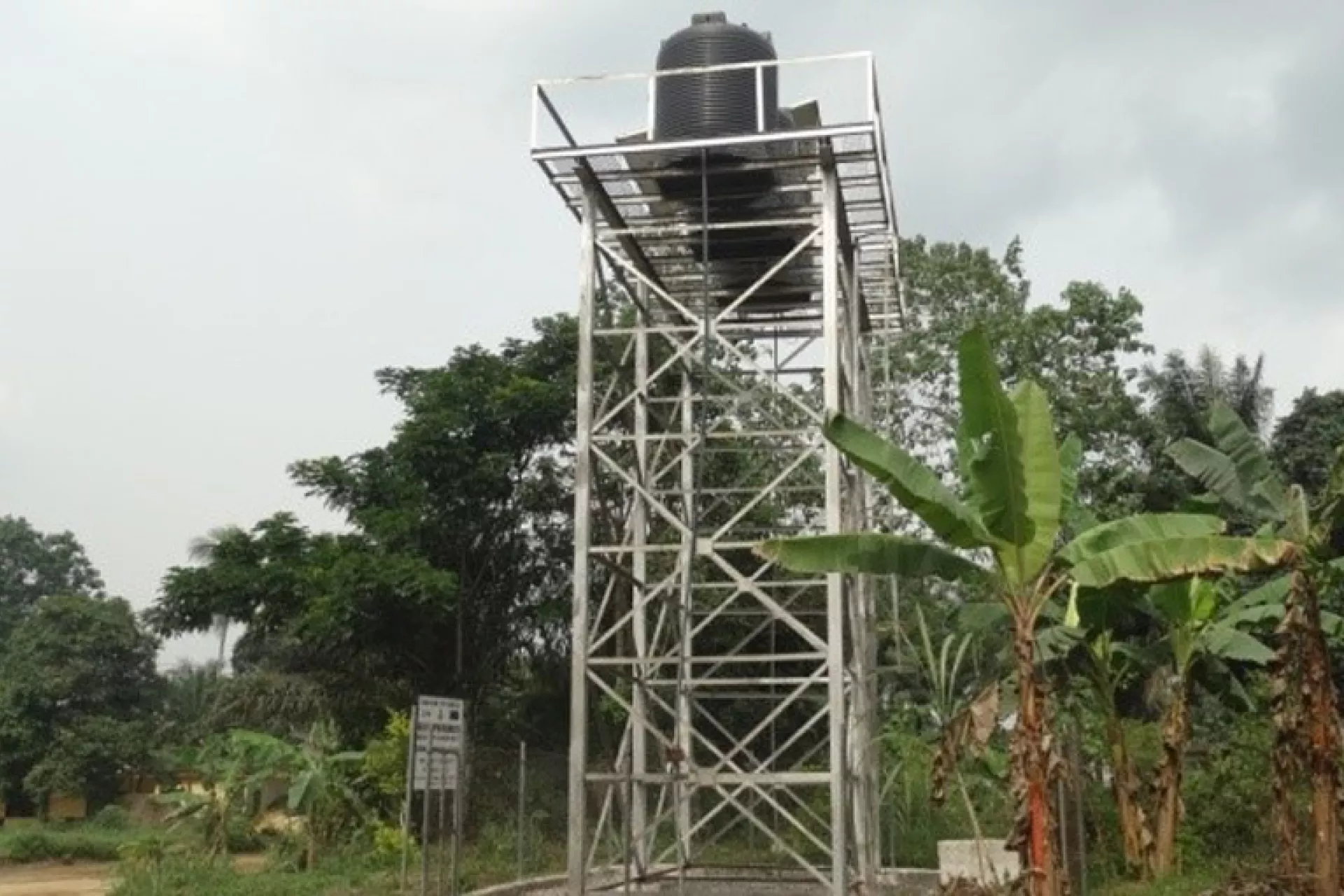How solar-powered water pumps are changing lives in Akwa Ibom state
Under the Niger Delta Support Programme (NDSP) funded by the European Union, UNICEF, in collaboration with the Akwa Ibom State Government, provided a solar-powered water pump for the community and now every family in Ikot Esop has access to safe water.

AKWA IBOM STATE, Nigeria, 5 September, 2017 – Akwa Ibom state, located in the Niger Delta region of southeast Nigeria, has many rural communities lacking access to basic necessities such as clean water.
Ikot Esop village, with a population of over 1,400, was one of the communities in Akwa Ibom state that did not have access to clean water. The only source of water was a stream located several kilometres away. The water from the stream was used for drinking, cooking, and cleaning, and the people were constantly plagued with diarrhoeal diseases. Children in Ikot Esop also had to walk over rough terrain to get water from the stream.

We used to rely on the stream for our water supply, which was a long way from the village. The water was not safe for drinking, but we used it anyway, and this caused many cases of diarrhoea.’’
In 2014, to help make safe water more accessible, UNICEF, with funds from the European Union, collaborated with the Akwa Ibom State Government to provide a solar-powered water pump for Ikot Esop. The pump system uses solar panels to convert the sun's rays into electricity, which pulls water up from deep below the earth’s surface. The water flows into storage tanks of about 24,000 litres which hold enough water for the entire community. Through a pipe system, water from the tanks flow directly to taps set up in strategic locations around the village.
Solar powered pumps are very durable and they rarely break down. This means the community is now completely independent in terms of water supply. The community members also feel a strong sense of ownership and responsibility for their system. This is partly due to the establishment of a Water Sanitation and Hygiene Committee (WASHCom), which teaches community members how to maintain their water facilities and also practice good hygiene.
“We ensure that the water points are maintained and everywhere in the community is kept clean,” says the WASHCom Chairman, Ediyang Ukpong. “The new water supply system has made life easier for us.’’

Since 2014, under the Niger Delta Support Programme (NDSP) which is jointly funded by EU, UNICEF and the Akwa Ibom state government, a total of 206,954 people have been provided with access to safe water and 224 communities have Water Safety Plans, a community approach to ensure that water is kept safe from the source to the point of use.
The UNICEF and EU water and sanitation projects in the Niger Delta region are being implemented in Delta, Akwa Ibom, Edo, Bayelsa and Rivers states. The provision of safe water in these states contributes to strengthening social bonding and peace building among communities.




